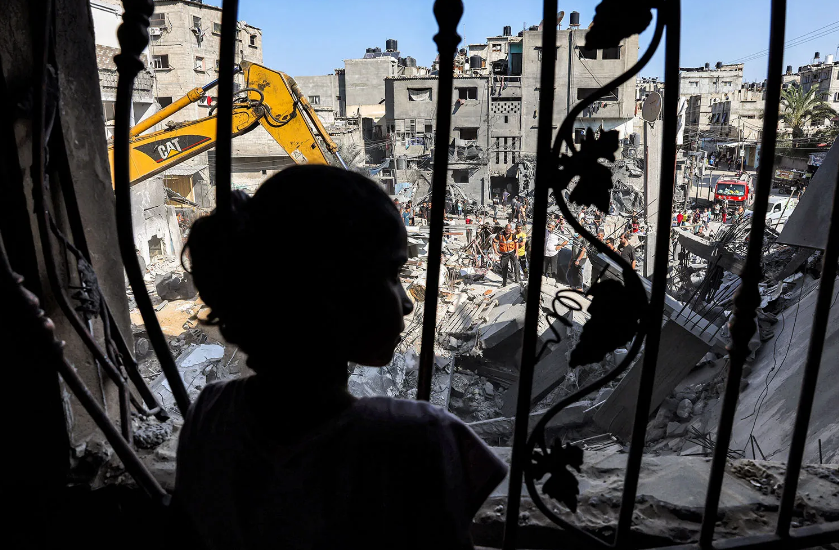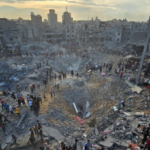Introduction to
The intertwining narratives of Jews and communism in Russia present a complex tapestry of history, filled with both resilience and tragedy. The iron sky video about Jews in communist Russia offers a unique lens through which we can explore this dark chapter. It is not just another historical documentary; it delves deep into the experiences of Jewish communities during one of the most turbulent times in Russian history.
As viewers, we are invited to reflect on the multifaceted struggles faced by these communities under oppressive regimes. This film sparks dialogue, prompting questions about identity, survival, and memory. What does it reveal about the past? How does it resonate with contemporary issues? Join us as we unpack the layers of this thought-provoking video and its broader implications for understanding our shared history.
Historical Context: The Rise of Communism and the Persecution of Jews
The rise of communism in the early 20th century marked a tumultuous period in history. Born out of revolutionary fervor, it promised equality and justice for all. Yet, this ideal often clashed with reality.
Jews faced significant persecution during this time. Historically marginalized, they became scapegoats for various societal issues. The Bolsheviks initially embraced Jewish intellectuals but soon turned against them as paranoia grew within the regime.
As anti-Semitic sentiments surged, many Jews found themselves caught between state-sponsored oppression and social discrimination. The propaganda machine depicted them as enemies of the people, fueling further hostility.
This backdrop is crucial to understanding narratives like those presented in “Iron Sky.” These films reflect deep-seated cultural tensions and struggles that continue to resonate today. Through storytelling, we glimpse the harsh realities experienced by countless individuals under an oppressive regime.
Overview of
“Iron Sky: The Coming Race” has sparked conversations about its depiction of Jews in Communist Russia. This film, while primarily a satire and science fiction piece, touches on serious historical themes.
The storyline intertwines humor with powerful imagery. It presents a unique lens through which viewers can explore the Jewish experience during this tumultuous era.
Critics have noted that the film’s approach may oversimplify complex issues. Some argue it risks trivializing historical suffering for comedic effect.
However, supporters appreciate its willingness to tackle difficult topics. They see it as an opportunity to engage audiences who might not otherwise confront these painful histories.
This duality makes “Iron Sky” both intriguing and contentious. Its portrayal raises essential questions about representation and the responsibility of filmmakers when addressing sensitive subjects like persecution and identity.
Criticism and Controversy Surrounding the Film
The “Iron Sky” video about Jews in Communist Russia has sparked significant debate since its release. Critics argue that the film oversimplifies a complex historical narrative, reducing multifaceted experiences into a single storyline.
Some viewers feel it risks trivializing genuine suffering by framing events within an exaggerated sci-fi context. This approach can dilute the very real horrors faced by Jewish communities during this tumultuous period.
Additionally, there are concerns regarding representation. Many believe that the film fails to accurately depict the diverse voices and stories of Jews who lived under Communism.
This controversy extends beyond just historical accuracy; it questions the ethical responsibilities filmmakers have when addressing sensitive subjects like persecution and identity. The dialogue surrounding these criticisms opens up vital conversations about how history is portrayed in popular media.
Analysis of the Impact and Relevance of
The “Iron Sky” video about Jews in Communist Russia serves as a potent reminder of the complex historical narratives that shape our understanding today. By bringing the struggles and resilience of Jewish communities to the forefront, it taps into a rich vein of history often overlooked.
This film encourages viewers to grapple with uncomfortable truths. It connects past injustices to present-day issues, urging society not to forget lessons learned from history. The stark portrayal of persecution resonates deeply, fostering empathy and awareness.
Moreover, its relevance extends beyond cinema. It sparks dialogue around anti-Semitism and human rights violations still occurring worldwide. This kind of engagement is crucial for cultural memory, promoting reflection on how far we’ve come—and how far we still need to go in ensuring equality for all marginalized groups.
By challenging perceptions through art, this work remains significant in contemporary discussions about identity and oppression.
Alternative Perspectives: Other Films About Jews in Communist Russia
Several films explore the experiences of Jews in Communist Russia, providing alternative narratives to the themes presented in Iron Sky. One notable example is “The Unvanquished,” which delves into the struggles faced by Jewish families during this tumultuous period.
Another significant film is “Moscow Does Not Believe in Tears.” While not exclusively about Jews, it highlights how anti-Semitism intertwined with broader societal issues within Soviet society. This adds layers to understanding that era.
“Everything Is Illuminated” offers a more contemporary take on Jewish heritage and memory against historical backdrops. Its unique storytelling challenges viewers to confront past injustices while reconnecting with personal identity.
These films enrich the discourse surrounding Jewish life under Communism, each contributing distinct viewpoints and emotional depth to an often-overlooked chapter of history. They invite audiences to reflect critically on cultural resilience amid oppression.
Conclusion:
The exploration of the iron sky video about Jews in Communist Russia raises significant questions and insights into a complex historical narrative. It sheds light on the suffering and struggles faced by Jewish communities during a tumultuous time.
While the film provides a unique perspective, it also invites criticism regarding its portrayal of events and characters. This underscores the importance of analyzing media representations critically, particularly when dealing with sensitive subjects like persecution.
Moreover, considering alternative films can enrich our understanding of this topic. Various cinematic works depict similar themes but may offer different interpretations or highlight other aspects of Jewish life under communism.
Engaging with these narratives helps preserve history while fostering discussions about identity, resilience, and cultural memory among Jewish communities. The dialogue sparked by such films remains vital as society continues to confront its past while looking towards an inclusive future.


